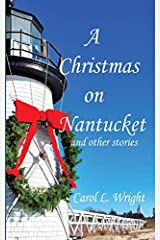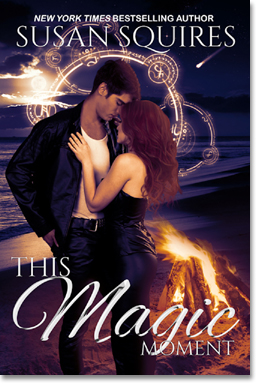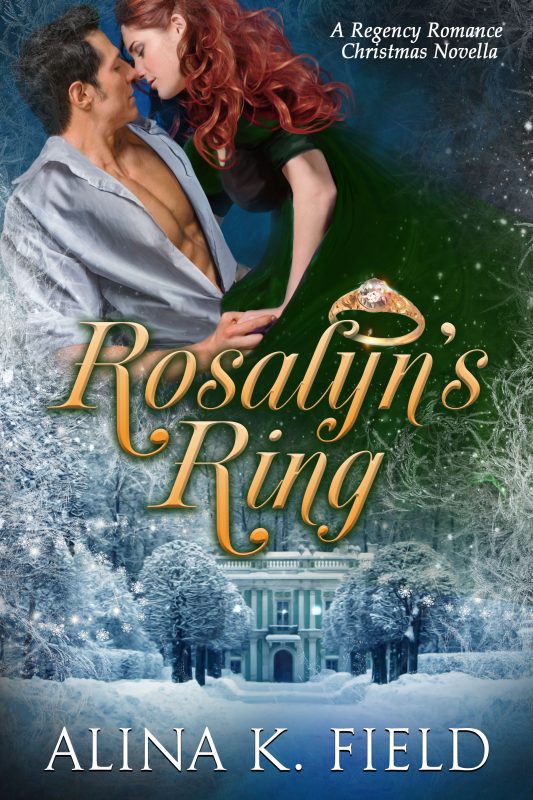The Seven Challenges I Love About Writing Short Stories by Jerome W. McFadden
May 13, 2024 by Bethlehem Writers Group in category From a Cabin in the Woods by Members of Bethlehem Writers Group tagged as Jerome W. McFadden, Short Stories, writing, Writing Advice
Multi-award winning Jerome W. McFadden’s has had forty short stories published over the past ten years in magazines, e-zines, and a dozen anthologies. His efforts have won him several national awards and writing contests, receiving a National Bullet Award for the Best Crime fiction on appear on the web in June 2011. His short stories have been read on stage by the Liar’s League in Hong Kong and the Liar’s League in London.
After receiving his B.A. from the University of Missouri, he spent two years as a Peace Corps volunteer in Casablanca, Morocco. Following his MBA from the Thunderbird Graduate School of Global Management (Arizona State University). He continued his peripatetic ways with corporate assignments in Houston, Istanbul, Paris, San Francisco, and Singapore, spending his spare time writing free-lance articles for American and newspapers and magazines. He morphed from journalism to short fiction in 2009. He now resides in Bethlehem, Pa. and is an active member of the Bethlehem Writers Group. His collection of 26 short stories, Off The Rails, A Collection of Weird, Wicked, & Wacky Stories, appeared in November, 2019.

The Seven Challenges that I Love About Writing Short Stories
1) You need to get into the story from the very start:
Every word in a short story matters. Time and space are limited. You cannot afford to waste a page or two describing the weather, building the setting, or giving the genealogy of your hero/heroine. You need to get to the guts of the action quickly, pulling the reader in with the first paragraph. By the end of the first page, the reader should be aware of the famous 5 W’s of journalism: Who, where, when, what, with why possibly coming later.
2) You need to quickly define the core of the story:
Short stories follow only one trajectory — one arc—concerning one character (or a small group of characters) traveling through one primary crisis or concern. The crisis or concern is in fact one shattering moment in that person’s (or group’s) life that he/she must work through, successfully or unsuccessfully. Note: That shattering moment does not need to be violent. It could be emotional, psychological, mental, or spiritual, or other. But it needs to be challenging. *
3) You must develop your characters rapidly:
Characters must be constructed with complexity, credibility, and emotion—in as little as a sentence or two. The writer must show character development while actively moving through the story’s narrative. You do not have time or space for the big old info dump. Instead, the writer needs to use clever dialogue, interactions, short flashbacks, and sharp imagery to develop the story’s characters.
4) You are allowed only so many characters in the story:
You are limited to a small cast of characters. A full cast might consist of only one or two characters. Any character you decide to introduce must bring something crucial to the story – or be eliminated. Bringing in a character for “cuteness” or for “color” or just because you like the quirky character in your head, is wasting precious words and precious space in your story. A good rule: Any character that does not bring in two vital elements into the story needs to be eliminated forthwith.
5) Short stories require a strong pace and balance:
Recognize the descriptions and dialogues that slowing the story down, as well those that are those that are moving the story along. You must identify the best place to start, where to put the opening scene that hooks the reader, then maintain that hook to continue to pull the reader through the rest of the story.
6) Short stories teach you to trim the fat:
Short stories leave no time for easing into things (long descriptions, banal conversations, interesting but boring backstory, wild personal tangents). Short stories are just that—short—but they must always pack a punch. This may be the ultimate skill to be learned from short story writing: Trim the fat. My favorite writing “rule” comes from the legendary writer Elmore Lenonard, “Leave out the parts that the readers skip.”
7) A great short story must create an emotional impact:
The stronger, the better. And a great twist at the ending helps make the story memorable.
An added note: The tools and skill you pick up from writing short stories are assets that can and probably should be used in your novel writing.
*This “shattering moment” is described lovingly and in full detail in Chapter 3 – The Big Key in James Scott Bell’s wonderful book How to Write Short Stories And Use Them to Further Your Writing Career.
A Selection of Books with Short Stories by Jerome W. McFadden
Hello Hattie
January 19, 2022 by Jenny Jensen in category On writing . . . by Jenny Jensen tagged as Writing Advice, young authors
A long-term client has an eight-year-old granddaughter who wants to be a writer “just like Grandma”. My client asked me to give this young aspirant some advice about writing. I didn’t want to; I couldn’t think of the last time I’d talked with an eight-year-old – 20 years ago? Of course, I couldn’t say no–I ‘m very fond of this client – so I gritted my teeth and pulled up a blank page. I didn’t want even a note of condescension in this–she’d see through that like the Emperor’s clothes – so I carefully launched into the usual stuff like ‘write what you know’. I surprised myself at what came out.
Hello Hattie,
I think it’s wonderful that you want to be a writer. There’s no time like the present, so you’d best get started. The more you write, the better those words will be. Just like pull ups for your biceps or crunches for the abs, your brain is a muscle and it needs constant sweaty workouts to become the kind of buff story machine every reader wants to read. You got a story in your head? Get it down on paper – just sit down and let it rip. No one but you needs to see these early attempts – not until you’re ready to share – so there’s no shame here. It’s all about trying and doing and then trying and doing all over again. It won’t be long before you start to feel as one with this process of putting ideas and thoughts on paper in a way that reads like a story.
The most common advice to writers is to “write what you know”. Don’t think you know much yet? I’d say you do. You know what it’s like to be a smaller person in a world with a lot of really big people who seem to have lots of rules about what you’re supposed to do and you know how you really feel about some of those rules. Write about that. You know what it’s like to be one of the shortest people at the zoo where getting up close to the animals can be challenging. Write about that. You know what it’s like to be in a group of classmates during recess; you know what goes on amongst you on the playground. Oh yes, write about that.
Best of all though, you have your imagination and you know what’s in there. If it’s an imaginary world only you see and know what goes on there, get it down on paper and see where that takes your story. It can be life in outer space or under sea or in a world that you’ve built yourself. You see, you really do know a lot. Start writing about those things your imagination has crafted.
And read read read. If you love a story then ask yourself why, what made this tale touch you so deeply, how did the author present the beginning, the middle and the end in such a great way? And learn from those writers. Pay attention to how a particularly fantastic character is described, how the words tell you this is a character you will always love or always fear or want to run laughing from. Build you story telling skills by learning from the masters. After all, that’s how they learned much of the craft of writing. Never stop reading.
And never stop writing. I look forward to your first publication.
I’ve printed it out, signed in red ink and put it in a hand addressed envelope. I used a very pretty frog stamp. I’ll put it in the post tomorrow. This young lady may not long remember my advice but I’m betting she doesn’t forget her first snail mail letter.
2 0 Read moreFour Steps To Face Your Fears
October 12, 2021 by Denise M. Colby in category The Writing Journey by Denise Colby tagged as Denise M. Colby, encouragement, Writing Advice, writing lifeI wanted to write something encouraging this month and decided to repost one of my earliest posts from this blog titled Face Your Fear, which I wrote in 2017. I have found throughout my writing journey, I’ve had some type of fear hold me back, which manifests itself in taking a hit on my productivity and confidence in my writing. So I thought I would repost and share the four steps to help face your fears.

Because I truly believe taking time to understand your fears each time they rear their ugly heads, can help you overcome them.
And I need the reminder myself these days.
So without further ado, here is the post.
What’s your biggest fear as a writer? For some of you, it might be putting the ideas swirling in your mind into actual words on the paper. For others, it might be pitching your manuscript or creating social media posts. Whatever it is, we all have them. And all that fear causes anxiety, worry, tension, panic, despair…you get the idea (we all write characters who struggle with these, right?). If you’re anything like me, my fears prevent me from accomplishing or completing some of my writing goals.
Four Steps To Help Face Our Fears
First, you must identify it. Write it down. What’s your biggest fear? Stare it straight in the face. It’s not so scary once you look at it written out.
Second, define it a bit more. Add another layer of thought to it. What specifically about it makes you have fear. Is it the entire thing or just a part or two. And then ask yourself, why is it scary for you?
Third, debunk it. Discover counter arguments to your fear. Find out from other authors if they have experienced the same fear. Soon you might realize this is a normal reaction to the process and you might even learn ideas to overcome your fear.
Fourth, push through it. Do one task which causes fear. Ask yourself —what’s the worst that can happen? Find a writing partner who can encourage you and help challenge you to follow through. Note: You may have to do this part more than once.
My own experiment with facing my writing fears
Step #1
I decided to take a 4 x 6 index card and ask myself what my greatest fear was. What I wrote surprised me. In my mind, I had a general overall fear, but when I wrote it down I saw something more specific.
I don’t always sit my butt in the chair and on the surface I tell myself it’s because I don’t have time, but deep down I’m seeing now it might be because I’m afraid. What if I sit down for an hour session and it isn’t any better than when I started? What if I only edit through a 600 word block in that time? I will never finish. And so on and so on….
So, for me, my fear is getting it wrong. I want to hit the mark and soar with my writing. I’ve entered a lot of contests and shown my work, and although I get encouraging feedback, I’m still missing the mark. And I’m afraid it will always be that way.
Step #2
I had to ask myself what specifically about getting it wrong meant. Was it failure? Afraid of what people think?
I don’t think I’m afraid of what people think so much (although I want people to like my work), as I am wondering if what I write will ever be ready to publish. I have lots of ideas, but when I write them down, they don’t sound as great as I thought they were. And I’m afraid no matter how much time I put in, I may never achieve my goal of getting published.
All this fear and doubt affects what I do day to day. How I spend my time. My mental state when I’m writing. And I don’t want it to.
Step #3
Fight back. Who decides if it’s wrong anyway? And how do they decide? Look at how many published authors sent in their manuscript numerous times before it was accepted. It’s just part of the process.
See, by writing it down, I can find counter arguments to what my fear is telling me. And it helps calm down the panic that wants to creep in. It keeps me from letting my fear stop me completely.
Step #4
Step four says to do something to face your fear, so I need to take risks and not be so afraid of doing so. Write a blog post even if it’s not perfect and post it. Write a new scene and show someone. Get feedback and keep trying. If I don’t do any of these things, I let the fear win. There is always going to be more I can add, more to improve, so why am I waiting to hit send? Waiting doesn’t do anything but feed my fear.
Fear keeps us from our goals. Something none of us wants.
For fun, I came up with this acronym. As we know, fear is an emotional response. We need to stop reacting to our fear and work on ways to work through it. So, FACE your FEAR. Fix And Change Every Fear from Emotional to an Analytical Response.
All so we can meet our goals. We all have goals we want to achieve, right?
So take some time and write down what your fear is and then face it. You just might work through that writer’s block you’ve been struggling with.
Hugs & Blessings,
Denise
Denise M. Colby loves to write words that encourage, enrich, & engage. Every year, she chooses a word to focus on. This year her word is Wisdom. If you’d like to see more of Denise’s posts on this blog, you can check out her archives.
0 0 Read moreHow to Finish Your Book and Keep Your Day Job: Protect your writing time like a mother protecting her young
November 3, 2020 by Janet Elizabeth Lynn and Will Zeilinger in category Partners in Crime by Janet Elizabeth Lynn & Will Zeilinger tagged as How to finish your book and keep your day job?, Planning, Writing Advice, writing time
How to finish your book and keep your day job?
Protect your writing time like a mother protecting her young
Writing a book is a work of love. However, things get in the way, i.e. work. We all dream of the day when we can make enough money to survive by writing. Until that day comes (if it ever does), we need to keep our full time jobs. We wrote and published our first five books working full time.
Time management is nothing to joke about when trying to write and support yourself or family with a full time job. Find the gaps in your schedule or day and use them to the fullest. Guard them and don’t let anything get in the way of your writing time. This is why scheduling writing time works so well. You can plan around the time.
We write between 6:00- 8:00 every morning. The only thing that keeps us from not writing is a fever of over 102. For us this is the best time because our day has not yet begun and we can focus on writing after a good night’s sleep. Pick a time of day where interruptions are at its minimum and plan it. We also clear our desks and have everything we need to write (on the desk) so we don’t need to get up. So just plan ahead.
Keep up the good writing.
Janet and Will
Chatting with Authors
Will Zeilinger and Janet Elizabeth Lynn created “Chatting With Authors.” This channel features informal interviews with authors of varied genres, produced via Zoom, and aired every Friday. Head over to YouTube and listen.
Dear Extra Squeeze Team, Should I Quit Writing?
October 31, 2020 by The Extra Squeeze in category The Extra Squeeze by The Extra Squeeze Team tagged as Dear Extra Squeeze Team, inspiration, Should I Quit Writing, The Extra Squeeze Team, Writing Advice, writing help
Dear Extra Squeeze Team,
It feels like the entire world is telling me to quit writing…is this normal and what should I do? Should I quit writing?

Rebecca Forster
USA Today Bestselling author of 35 books, including the Witness series and the new Finn O’Brien series.
I am tempted to sit down beside you and just cry.
Instead, I’m going to tell you to buck up, bucko!
I know, I hated hearing that too, but we’ve all been there, done that. Instead of being the company misery loves, I’ll offer this. I sold my first three books and then spent years trying to sell another one. When I finally figured out what was wrong, there was no stopping me. I also had a good friend who was rejected 40 times, and when she finally sold a book her career took off. Every writer’s struggle is different and how we deal with it is too.
In my case, I defaulted to my comfort zone — analysis. I certainly could put a sentence together, but when I reread my rejection letters, I realized my storytelling was lacking. Instead of flying by the seat of my pants as I had early on, I now sought out ways to educate myself about structure. I also realized I was afraid to delve into my characters. They were cookie cutter, and I needed to be more invested in their lives. I asked myself if I was writing in the correct genre. When the answer was no, and I switched genres my career turned around. Finally, I asked myself if I understood the publishing businesses well enough to navigate it.
The bottom line was this I needed to learn a craft. Writing isn’t just something that happens magically. You need to stretch your creative and business muscles, learn the game, and then make it your own. Information is out there. Embrace it, understand it, and use it. If you’re having trouble being objective about your own work, seek out an editor. If you can’t afford an editor, find a mentor. If you can’t find a mentor, find a friend who loves to read and who is very honest to give you feedback. If the world is telling you to quit, figure out why, and then show the world they were wrong.

Jenny Jensen
Developmental editor who has worked for twenty plus years with new and established authors of both fiction and non-fiction, traditional and indie.
Do your level best to ignore those negative feelings —there’s probably few writers who haven’t felt doubt. Keep writing. Everyday. Storytelling is a craft and like every craft it takes practice to perfect. Rejection is a part of that process and is often the most instructive tool a writer can receive: why was the work rejected? Work on strengthening the weaknesses that caused the rejection. Same with healthy criticism.
Simple is not always easy, but it really is simple. If you want to write, then there is nothing that will stop you. Just keep on writing and improving, writing and improving even more.
H.O. Charles
Cover designer and author of the fantasy series, The Fireblade Array
Yes, it’s normal.
Commercially speaking, it’s very hard to know when to listen to the world and when to defy it. Sometimes great works are never appreciated until decades later.
Outside of money, if you feel you have to write, then it doesn’t matter what the world thinks. Most writers find their fingers tapping away at something regardless of negative reviews, poor sales etc. It has to be a hobby you enjoy before anything else.
Robin Blakely
PR/Business Development coach for writers and artists; CEO, Creative Center of America; member, Forbes Coaches Council.
Welcome to the world of writing.
It is completely normal to feel, from time to time, that this world has conspired against you and that it is secretly or not-so-secretly telling you to quit writing. This quitting option seems to present itself at critical moments repeatedly while creative people are wandering up the road less traveled.
When you feel this kind of despair, you have two simple choices: quit or don’t quit. If you decide to quit, perhaps you can imagine that the quitting is just for a while, not forever. Sometimes quitting for a period of time can be a pretty good choice if you are exhausted and burned out.
But, I would hope that you might choose to not quit. If you choose to carry on instead of quitting, perhaps you could take this juncture to step back for a moment and evaluate what is happening to make you feel this way.
Perhaps you have surrounded yourself with naysayers. If so, get away from them. Perhaps you have driven yourself to exhaustion with self-demands of perfection or self-expectations of production. If so, get some help from someone who can objectively reset those goalposts with you.
Everyone goes through stages and phases of battle weariness when fighting the unknown. Writers face a lot of unknowns and the most intense moments typically happen right before a breakthrough.

Ever wonder what industry professionals think about the issues that can really impact our careers? Each month The Extra Squeeze features a fresh topic related to books and publishing.
Amazon mover and shaker Rebecca Forster and her handpicked team of book professionals offer frank responses from the POV of each of their specialties — Writing, Editing, PR/Biz Development, and Cover Design.
If you have a question for The Extra Squeeze Team, use our handy dandy contact form.
Affiliate Links
A Slice of Orange is an affiliate with some of the booksellers listed on this website, including Barnes & Nobel, Books A Million, iBooks, Kobo, and Smashwords. This means A Slice of Orange may earn a small advertising fee from sales made through the links used on this website. There are reminders of these affiliate links on the pages for individual books.
Search A Slice of Orange
Find a Column
Archives
Featured Books
CHRISTMAS ON NANTUCKET AND OTHER STORIES
Heartfelt stories with a mix of joy and sadness, love and loss, celebrations of all seasons, and a bit of mystery and magic
More info →ROAD TO YOU
Investigative reporter Gemma Wade has been dispatched to her own personal purgatory—small town Marietta, Montana—to write a fluffy, romantic piece about the unprecedented spike in marriages there.
More info →THIS MAGIC MOMENT
She knows in her blood and in her bones that her Destiny is a member of the Clan. She must reject him as an enemy. But can she?
More info →ROSALYN’S RING
A rash Christmas Eve quest to save a young woman lands a Baron’s daughter in the lap of a jaded Viscount…and he’s not letting her go.
More info →Newsletter
Contributing Authors
Search A Slice of Orange
Find a Column
Archives
Authors in the Bookstore
- A. E. Decker
- A. J. Scudiere
- A.J. Sidransky
- A.M. Roark
- Abby Collette
- Alanna Lucus
- Albert Marrin
- Alice Duncan
- Alina K. Field
- Alison Green Myers
- Andi Lawrencovna
- Andrew C Raiford
- Angela Pryce
- Aviva Vaughn
- Barbara Ankrum
- Bethlehem Writers Group, LLC
- Carol L. Wright
- Celeste Barclay
- Christina Alexandra
- Christopher D. Ochs
- Claire Davon
- Claire Naden
- Courtnee Turner Hoyle
- Courtney Annicchiarico
- D. Lieber
- Daniel V. Meier Jr.
- Debra Dixon
- Debra H. Goldstein
- Debra Holland
- Dee Ann Palmer
- Denise M. Colby
- Diane Benefiel
- Diane Sismour
- Dianna Sinovic
- DT Krippene
- E.B. Dawson
- Emilie Dallaire
- Emily Brightwell
- Emily PW Murphy
- Fae Rowen
- Faith L. Justice
- Frances Amati
- Geralyn Corcillo
- Glynnis Campbell
- Greg Jolley
- H. O. Charles
- Jaclyn Roché
- Jacqueline Diamond
- Janet Lynn and Will Zeilinger
- Jaya Mehta
- Jeannine Atkins
- Jeff Baird
- Jenna Barwin
- Jenne Kern
- Jennifer D. Bokal
- Jennifer Lyon
- Jerome W. McFadden
- Jill Piscitello
- Jina Bacarr
- Jo A. Hiestand
- Jodi Bogert
- Jolina Petersheim
- Jonathan Maberry
- Joy Allyson
- Judy Duarte
- Justin Murphy
- Justine Davis
- Kat Martin
- Kidd Wadsworth
- Kitty Bucholtz
- Kristy Tate
- Larry Deibert
- Larry Hamilton
- Laura Drake
- Laurie Stevens
- Leslie Knowles
- Li-Ying Lundquist
- Linda Carroll-Bradd
- Linda Lappin
- Linda McLaughlin
- Linda O. Johnston
- Lisa Preston
- Lolo Paige
- Loran Holt
- Lynette M. Burrows
- Lyssa Kay Adams
- Madeline Ash
- Margarita Engle
- Marguerite Quantaine
- Marianne H. Donley
- Mary Castillo
- Maureen Klovers
- Megan Haskell
- Melanie Waterbury
- Melisa Rivero
- Melissa Chambers
- Melodie Winawer
- Meriam Wilhelm
- Mikel J. Wilson
- Mindy Neff
- Monica McCabe
- Nancy Brashear
- Neetu Malik
- Nikki Prince
- Once Upon Anthologies
- Paula Gail Benson
- Penny Reid
- Peter J Barbour
- Priscilla Oliveras
- R. H. Kohno
- Rachel Hailey
- Ralph Hieb
- Ramcy Diek
- Ransom Stephens
- Rebecca Forster
- Renae Wrich
- Roxy Matthews
- Ryder Hunte Clancy
- Sally Paradysz
- Sheila Colón-Bagley
- Simone de Muñoz
- Sophie Barnes
- Susan Kaye Quinn
- Susan Lynn Meyer
- Susan Squires
- T. D. Fox
- Tara C. Allred
- Tara Lain
- Tari Lynn Jewett
- Terri Osburn
- Tracy Reed
- Vera Jane Cook
- Vicki Crum
- Writing Something Romantic
Affiliate Links
A Slice of Orange is an affiliate with some of the booksellers listed on this website, including Barnes & Nobel, Books A Million, iBooks, Kobo, and Smashwords. This means A Slice of Orange may earn a small advertising fee from sales made through the links used on this website. There are reminders of these affiliate links on the pages for individual books.























































